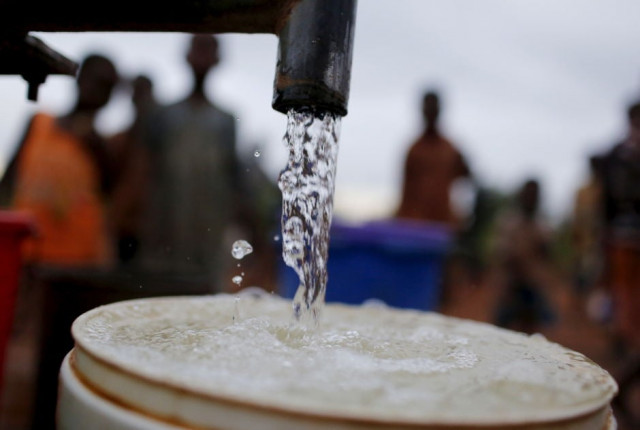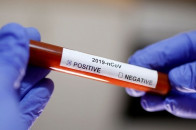‘People drank tap water in Karachi. It’s not possible anymore’
Panellists discuss city’s long-standing water woes, identify causes and solutions

A representational image. PHOTO: REUTERS
"It is not possible to do so any more," he rued, touching upon the grave issue of the water crisis that has been miring the metropolis down - the city faces a shortfall of 700 million gallons daily (MGD) of water against its need of 1.2 billion gallons.
Shedding light on the problem, Khan remarked that the "issue is made complex deliberately."
In line with Khan's views, Public-Private Partnership Unit director-general Khalid Mehmood Shaikh, also the former managing director of the Karachi Water and Sewerage Board (KWSB), pointed out mismanagement in KWSB as one of the major causes behind Karachi's water problem.
"Mismanagement is one of the major issues at KWSB," he said, adding, "Performance in the public sector can be improved through good governance but political compulsions, administrative issues and corruption are a hindrance in the way." However, he also said that KWSB was not the only government department facing these issues. Rather, all public sector departments were criticised for their inefficiency.
Moreover, two main sources for Karachi's water supply - Keenjhar Lake and Hub Dam - greatly relied on rainfall, said Shaikh, implying that the lack of other, more dependable sources was another reason for water scarcity.
As the discourse shifted towards identifying solutions for the problem, Hub Power Company Limited (HUBCO) projects head Babar Siddiqui, said that Karachi was fortunate to be located by the coast, which meant that desalination of seawater was a good way to meet the water shortfall in the city. However, there was a catch, said Siddiqui: desalination required heavy electricity consumption.
"Unfortunately, electricity is expensive in Pakistan which means any water supplied through desalination plants would be costly," he said, adding that out of 550MGD water given to Karachi, 450MGD went to the sewage system.
Also, it was crucial for the private sector and the government to work together to address the water shortage, said HUBCO project executive Farrukh Rasheed, proposing to enter a public-private partnership venture to deal with the problem.
"We [HUBCO] have the capital, management practices and good learning capability, and the government can assist with the infrastructure," he said. Adding that HUBCO was particularly focused on water creation and recycling, Rasheed maintained that recycling was the most effective tool to reduce "water stress."
Later, speaking with a broader perspective, Rasheed said that the problem of water shortage was not just limited to Karachi but had gripped the entire country. Citing reports and statistics, he said Pakistan had been categorised as a water-scarce country already. By 2025, it could likely be ranked as extremely water-scarce country if sufficient measures were not taken, he warned.
Published in The Express Tribune, March 1st, 2020.



















COMMENTS
Comments are moderated and generally will be posted if they are on-topic and not abusive.
For more information, please see our Comments FAQ